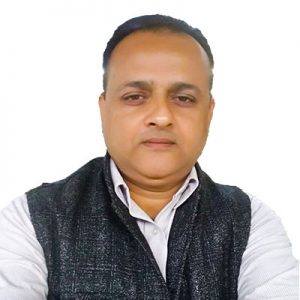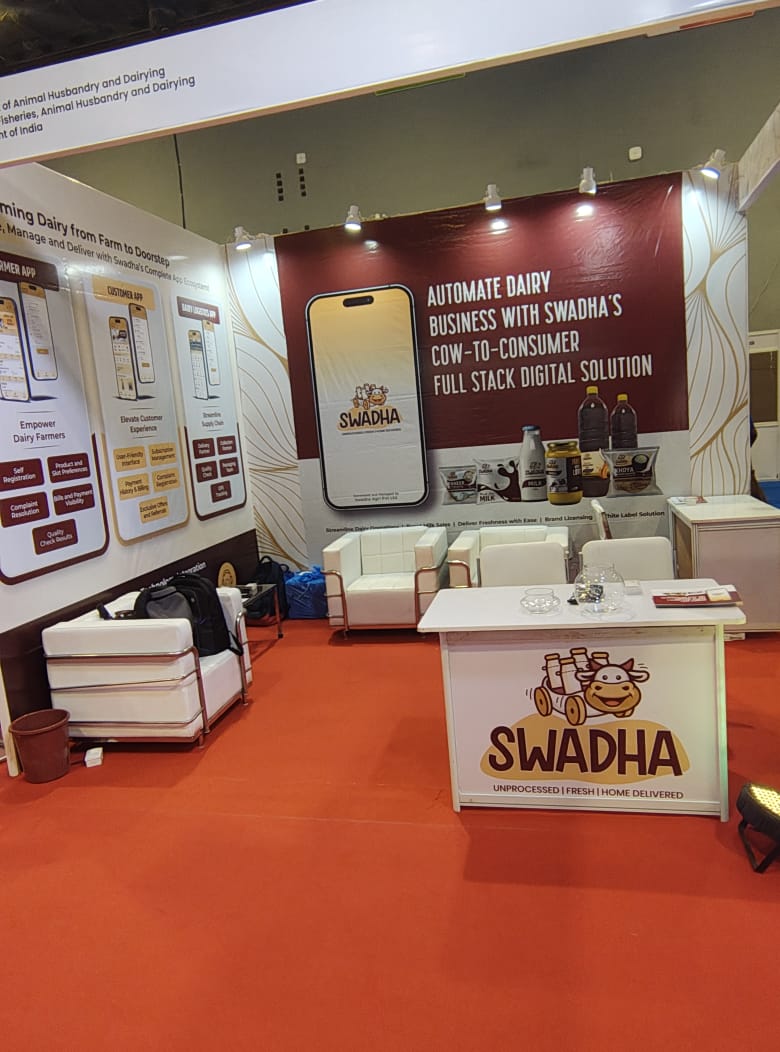By Ramakant Chaudhary
As World Food India 2024 unfolds at Bharat Mandapam in New Delhi, all eyes are on Swadha Agri, a women-led, rural-based dairy tech startup that’s set to showcase its innovative franchise model and SaaS-based Full Stack Digital Solution. This four-day event, commencing on September 19, 2024, serves as the gateway to India’s food economy, bringing together manufacturers, producers, food processors, investors, and policymakers in a collaborative ecosystem.
India, the largest producer of several agricultural commodities, boasts a consumer base of 1.4 billion people. With supportive government policies and an environment conducive to ease of doing business, both domestic and global investors are eager to expand their operations in the country. World Food India 2024 provides the perfect platform for these stakeholders to connect, fostering Government-to-Business (G2B) and Business-to-Business (B2B) relationships.
At the heart of this mega event is Swadha Agri, a startup that has successfully bridged the gap between rural dairy farmers and urban markets. Founded in Palamu, Jharkhand, the company has delivered over 5 lakh orders while maintaining an impressive 97% customer retention rate. This success story is now poised for replication through their innovative franchise model, which has already garnered multiple accolades.
Neha Bharti, the CEO of Swadha Agri, articulates the company’s mission: “Swadha Agri was created to bring transparency, fairness, and empowerment to rural farmers, especially women. Our franchise and SaaS models are designed to scale this success in Tier 2 and Tier 3 cities, transforming the dairy supply chain. We are excited to showcase this at World Food India 2024.” This vision extends beyond mere business growth; it represents a potential economic boon for India’s smaller cities and rural areas.
The franchise model proposed by Swadha Agri could significantly boost the economy through various channels. Primarily, it promises job creation at the local level, one of the most substantial benefits of franchising. By offering entrepreneurs the opportunity to replicate Swadha’s successful business model in underserved regions, the company is potentially unleashing a wave of economic stimulation and community development.
Furthermore, this model fosters innovation and healthy competition in the dairy sector, ultimately benefiting consumers through improved products and services. Franchisees receive comprehensive business support and development resources, enhancing their chances of success and contributing to the overall growth of the industry.
What sets Swadha Agri apart is its multifaceted approach to revolutionizing the dairy industry. As a women-led, rural success story, the company is built on the foundation of empowering women farmers through direct payments, transparent operations, and a sustainable business model. Their franchise opportunity offers a turnkey model designed for rapid replication, providing franchisees with operational support, exclusive territories, and access to Swadha’s growing customer base.
The company’s SaaS Full Stack Solution automates the entire dairy supply chain, offering real-time tracking, quality control, and seamless delivery management from farm to consumer. This technological edge not only improves efficiency but also ensures product quality and customer satisfaction. Moreover, Swadha Agri’s commitment to sustainability is evident in their use of eco-friendly practices, including glass packaging and electric vehicles for delivery.
The growth trajectory of Swadha Agri has been guided by expert mentorship and incubation support. Dr. Anita Tripathy Lal of FORE School of Management and Mr. Prashant Sharma of Voeden have been involved since the company’s inception, providing valuable insights and direction. Additionally, Swadha has benefited from incubation and support from prestigious institutions such as NASSCOM Startups, IIM Lucknow Incubator, and IIM Bangalore NSRCEL’s Goldman Sachs 10000 Small Businesses Program.
The company’s innovative approach has not gone unnoticed. Swadha Agri has been recognized as one of the Top 10 Finalists at the National Agri Innovate Hackathon 2024, emerged as the winner of the STPI Chunauti 7.0 Challenge and the STPI NXT Octane OCP 5.0 Award, and has been featured as part of Frugal Innovation by Imperial College of London.
As Swadha Agri takes center stage at World Food India 2024, it represents more than just a successful startup. It embodies the potential of rural innovation, women’s empowerment, and technology-driven solutions in transforming India’s agricultural landscape. By showcasing their franchise model and SaaS solutions, Swadha Agri is not only presenting a business opportunity but also offering a blueprint for sustainable, inclusive growth in India’s dairy sector.
The company’s presence at this prestigious event underscores the changing dynamics of India’s food industry. It highlights how grassroots innovations, when coupled with the right support and technological integration, can scale to address national challenges. As India marches towards becoming the third-largest economy, companies like Swadha Agri are playing a crucial role in fueling this growth by generating job opportunities and empowering small farmers and entrepreneurs through scalable, tech-driven business models.
World Food India 2024 thus serves as more than just an exhibition; it’s a witness to India’s evolving food economy and its potential to lead global agricultural innovation. With Swadha Agri at the forefront, the event showcases how rural ingenuity, technological adoption, and sustainable practices can converge to create a more robust, efficient, and inclusive food supply chain for India’s growing population.
 Ramakant Chaudhary is senior journalist. He has worked in various editorial roles with Financial Express, Mint (Hindustan Times Group), The Times Of India, Jagran Post (Dainik Jagran Group), The Pioneer, and The Political and Business Daily. He writes going beyond headlines on: politics, government policy, economy, infrastructure, real estate, education, social issues, lifestyle, and health.
Ramakant Chaudhary is senior journalist. He has worked in various editorial roles with Financial Express, Mint (Hindustan Times Group), The Times Of India, Jagran Post (Dainik Jagran Group), The Pioneer, and The Political and Business Daily. He writes going beyond headlines on: politics, government policy, economy, infrastructure, real estate, education, social issues, lifestyle, and health.

